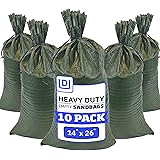Growing Your Own Food
Container Gardening
Man, let me tell you, when I first moved to the city, I thought I would be stuck with overpriced grocery stores for good. But then I discovered container gardening! All you need are some pots, soil, and seeds. What’s great is you can do it on a balcony or even a windowsill. Basil, tomatoes, and peppers are some of the easiest to start with.
Now, I ain’t saying I became a master gardener overnight. It took a little trial and error, and sure, I lost a few seedlings here and there. But eventually, I got the hang of it, and seeing those little green sprouts come up gave me a sense of joy. Plus, think about the money you save having fresh herbs right outside your door!
One big takeaway? Water your plants consistently. In an urban setting, it can be easy to forget about them with the hustle and bustle around, but regular care makes all the difference. If I can do it, so can you!
Community Gardens
If you’re not sure about starting a garden from scratch, check out community gardens. I stumbled upon mine at a local park and joined in. It’s a great way to meet neighbors, share tips, and learn from others who are more experienced than you.
These little gems not only provide you with fresh produce but also foster a sense of community. Seriously, nothing feels better than sharing a harvest with fellow gardeners. And, you’ll often find events or workshops that help you improve your gardening skills at these gardens.
Just remember that most community gardens require some upkeep, so be prepared to lend a hand. In the end, the friends you make and the food you grow are totally worth it!
Herb Spirals and Vertical Gardens
Have you ever heard of herb spirals or vertical gardens? I sure hadn’t until I started digging deeper into urban gardening. These techniques are super efficient, especially if space is tight. An herb spiral is essentially a compact way to grow multiple herbs vertically, conserving space and making it a stunning focal point in any backyard.
Building one may sound daunting, but believe me, it’s not! You can repurpose materials like bricks or stones to build the spiral. I watched a YouTube tutorial and got inspired. Seriously, it’s like my little piece of nature right in my concrete world!
== > What if ... Get a FREE Subscription to PREPARE
Vertical gardens are another cool option. Whether you build one yourself or buy a pre-made structure, it’s a fun way to maximize your growing area. Plus, think of the compliments you’ll get from friends seeing that green wall. Ah, the envy!
Utilizing Local Resources
Farmers’ Markets
If you want fresh produce without the hassle of growing it yourself, farmers’ markets are a goldmine. I love strolling through my local market on weekends. There’s just something about fresh fruits and vegetables bought directly from farmers that tastes better.
Another perk is supporting local businesses. When I buy from farmers’ markets, I know my dollars are helping the economy in my neighborhood. Plus, you often get a chance to ask questions and get recommendations straight from the source!
Don’t be afraid to haggle a little. Compliment someone’s gorgeous tomatoes and see if they’ll give you a discount. A friendly chat can sometimes lead to some sweet deals!
Food Co-ops
Food co-ops are another fantastic way to keep your pantry stocked with fresh, often organic food. I got involved with a local co-op and it’s become a game changer for my groceries. Typically, you can find all the essentials at lower prices than chain stores, especially if you’re buying in bulk.
Co-ops often encourage a communal atmosphere where you can volunteer in exchange for discounts, and trust me, it’s a great way to meet like-minded folks. I’ve learned to cook some amazing dishes by just chatting with fellow members.
And here’s a pro tip: many co-ops have members who can assist you in finding specialty items, so never be afraid to ask around if you’re looking for something specific!
Community-Sponsored Agriculture (CSA)
Joining a CSA can be a lifesaver for securing food in an urban area. I signed up last summer and it was the best decision ever. Essentially, you pay upfront for a share of the farm’s harvest, and you get a regular delivery of fresh produce throughout the season. It’s like a surprise gift every week!
By joining, you also help local farmers (who often face the challenges of urban sprawl) maintain their land. You feel connected to the food system in a way that’s pretty fulfilling. Plus, it introduces you to seasonal eating, which is healthier and more sustainable.
Just make sure to pick a CSA that fits your dietary needs and preferences, and be ready to get creative in the kitchen with whatever surprises await in your box each week!
Bartering and Sharing Systems
Neighborhood Food Swaps
Food swaps? Yes, please! These events are a great way to meet your neighbors and exchange delicious homemade goods. I found a local group that organizes monthly food swaps where I can trade baked goods for fresh garden vegetables or canned items. The possibilities are endless, and it’s a win-win for everyone.
When participating, remember to bring something unique to the table—nobody wants to trade for the same ol’ bread. Experiment a bit and you might find yourself creating something new and exciting. Plus, you get to try loads of different foods without the hassle of making them all yourself!
Just be sure your food is packaged nicely and labeled. It adds a personal touch and shows you’re serious about your goodies!
Get Preparedness and Self-Reliance Tips. Subscribe Now!
Online Community Groups
Have you ever thought about joining online community groups focused on food sharing? I found a Facebook group specific to my area where residents post offers for excess food, whether that’s homegrown fruits or leftovers. It’s a super cool way to keep food from going to waste.
I’ve posted a few times when I had extra herbs or veggies that were too much for my dinner. People are generally pretty grateful, and in turn, I’ve been able to score some free goodies myself. It’s like a digital barter system that benefits everyone involved!
Just remember to be cautious and respectful. Always ensure you pick up promptly if you’re taking someone’s leftovers, and be clear about your offers to avoid misunderstandings.
Time Banking for Food
Now here’s a unique concept: time banking. Imagine exchanging hours of your time for groceries. I joined a local time bank, and it’s been fantastic! It works on the premise that everyone’s time holds equal value, so if you can babysit someone’s kids, you can trade those hours for fresh food.
This method can bring a sense of community closer together, as you end up with new skills and connections. I met a woman who taught me how to ferment vegetables while I helped her set up a garden at her place. It’s collaboration at its finest.
Always check for local time banks in your area, and remember, you can potentially offer skills that go beyond food. It’s all about participation!
Buying in Bulk and Saving Resources
Bulk Purchase Clubs
I can’t sing the praises of bulk buying enough! Finding a bulk purchase club has saved me tons of cash. Together with friends, we buy staples like grains, beans, and spices. Not only do you save money, but it means fewer trips to the store.
Buying bulk can sound intimidating, but just pick a few items each time, especially ingredients you use frequently. Creating a shared list with friends helps minimize waste and keeps everyone accountable. I love knowing I’m not the only one trying to get my pantry organized!
Just be sure those bulk items are well stored. I invest in some nice jars to keep everything fresh and to give my kitchen a chic, organized look.
Local Discounts and Loyalty Programs
Don’t sleep on the little discounts! I’m always on the lookout for local stores with loyalty programs. By signing up, I often receive special deals, discounts, or even free products. It’s just like a no-brainer for me at this point.
Ask around loving local businesses—they may have programs you didn’t even know about. Try a small cafe or butcher shop—they usually have community-focused discounts!
Another trick is to follow your local grocery stores on social media. They’ll often post about flash sales or put coupons up that can help you save big!
Preserving Food for the Long Haul
Last but not least, I can’t stress enough the importance of preserving food. When you find deals or harvest too much from your garden, preservation is crucial. I’ve fallen in love with canning and pickling my fruits and veggies — it’s like holding summer in a jar!
While it can seem overwhelming, diving in with a few basic recipes can make it fun and rewarding. Start with simple projects like jams or pickled cucumbers; I’ll bet you’ll be hooked!
Also, don’t forget about freezing. Whether it’s excess produce from the garden or leftovers from last week, freezing can significantly reduce waste. Just make sure to label everything—you don’t want to freeze a meal and forget what it is months later!
FAQ
1. What are the main advantages of growing my own food in an urban area?
Growing your own food offers you fresh produce, saves money, and promotes a sense of accomplishment. Plus, it’s a great way to combat food insecurity by ensuring you have access to healthy options.
2. How can I get started with a community garden?
First, look for community gardens in your local area via social media or neighborhood groups. Then, reach out, learn about joining, and find out what you can contribute to the space!
3. Are food swaps worth the effort?
Absolutely! Food swaps foster community, allow you to try new things, and cut down on food waste. Plus, who doesn’t love sharing delicious homemade goodies?
4. What are some tips for preserving food effectively?
Start with basic methods, like canning, freezing, or drying. Always ensure proper hygiene and follow safety guidelines. This way, you can enjoy your harvest long after the season ends!
5. How can bulk buying save me money?
Buying in bulk reduces individual item prices and limits packaging waste. When you purchase shared staples with friends, you can save even more, creating a collective pantry that benefits everyone!






